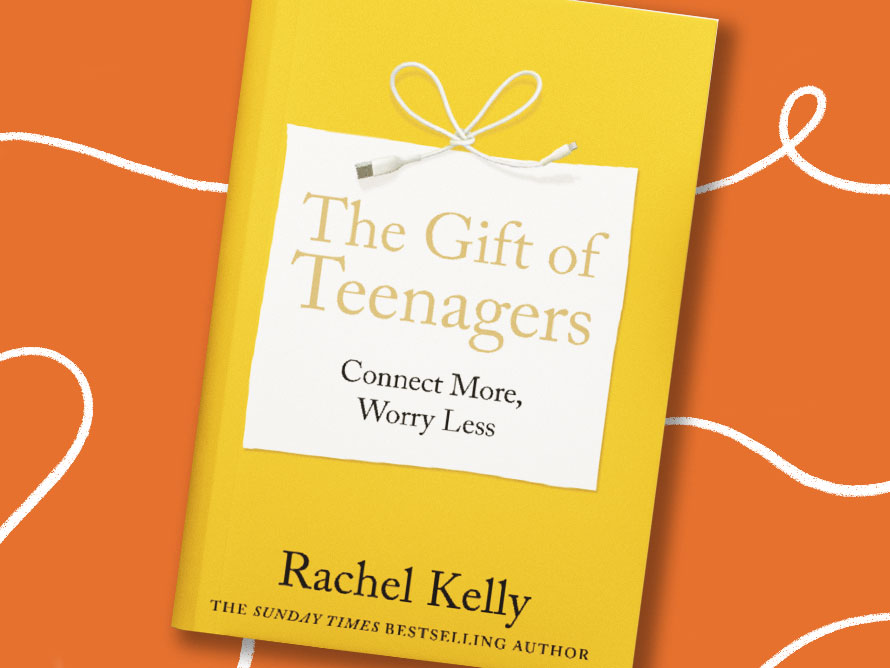Should parents stop worrying so much? Author and mother of five Rachel Kelly thinks adolescents have valuable lessons to teach the rest of society.
The teenagers are not OK. According to research, one in five young people in the UK experiences a mental health problem in any given year.1 And the situation is getting worse, with rises in adolescent eating disorders,2 self-harm3 and suicide attempts.4
But that is not all. Teenagers are also exposed to damaging online content that spreads extreme and toxic views. That was the message of the hit Netflix series Adolescence, which British Prime Minister Keir Starmer claimed was “harrowingVery upsetting. A harrow is a piece of machinery used by farmers to break up the soil. ” to watch.5
Even when teens are not in crisis, they are moody, idle and uncommunicative — according to many parents. They are often seen sleeping in late, speaking in monosyllablesWords that have only one syllable, meaning they are spoken with a single, unbroken sound. and spending all their time online.
But a new book argues that parents might be part of the problem. If mothers and fathers can learn to control their own emotions, they will raise more settled and resilient teenagers. The philosophy is simple: calm parents mean calmer teenagers.
The book’s author Rachel Kelly is a bestselling writer, speaker and mental health advocate. She became a popular online presence after describing her own experiences of overcoming anxiety and depression. Her new book, titled The Gift of Teenagers, shares the lessons she has learnt from raising five teenagers.
Kelly offers parents 20 tips “to make your teen hate you less”. This includes chewing gum or using breathing exercises to stay calm, setting a good example by limiting personal phone use, and letting an adolescent son or daughter sleep in late.6
If parents can learn to “work with our teenagers, rather than against them”, they will worry less about things like bullying in classrooms or social media addiction.7 As their adolescent son or daughter grows older, they might adapt their parenting style and grow more independent as well.
Many researchers agree that adolescence has never been harder, but they disagree about the cause. Some think social media is responsible, creating addictive behaviour and unhealthy expectations. Others blame the pandemic, which increased isolation among young people.8
According to the American psychologist Jonathan Haidt, parents have become over-protective, delaying the age at which children can play without supervision or run errands by themselves. He argues that childhood is no longer “play-based” but “phone-based,” meaning adolescents grow up defensiveTrying to protect yourself from being hurt, blamed, or criticised — either physically or emotionally. and insecure.9
Not everyone agrees. Other researchers point to economic factors, such as household poverty and the rising cost of living. Given global instability and the threat of climate change, no wonder young people feel anxious about the future.
However, Rachel Kelly’s book still has an important lesson. Rather than thinking of adolescence as a difficult time that parents and teenagers must both endure, instead she argues that it is an adventure they can experience together.
Should parents stop worrying so much?
Spirited teen
Yes: Anxious parents create anxious children. Let adolescent boys and girls become more independent and they will develop higher levels of resilience and responsibility.
No: Teenagers are in crisis and parents are not to blame. Instead, social media, the pandemic, the economy and the environment are much more responsible for the problem.
Or… Whatever the cause of the mental health crisis among adolescents, Rachel Kelly’s book contains an important message: parents must learn to value and appreciate their teenage children.
Keywords
Harrowing – Very upsetting. A harrow is a piece of machinery used by farmers to break up the soil.
Monosyllables – Words that have only one syllable, meaning they are spoken with a single, unbroken sound.
Defensive – Trying to protect yourself from being hurt, blamed, or criticised — either physically or emotionally.
- Reported by NHS.
- Reported by Children’s Commissioner.
- Reported by BBC.
- Reported by RCPCH.
- Quoted by BBC.
- From Rachel Kelly.
- Quoted in Grazia.
- Reported by The Health Foundation.
- Reported in The Guardian.





